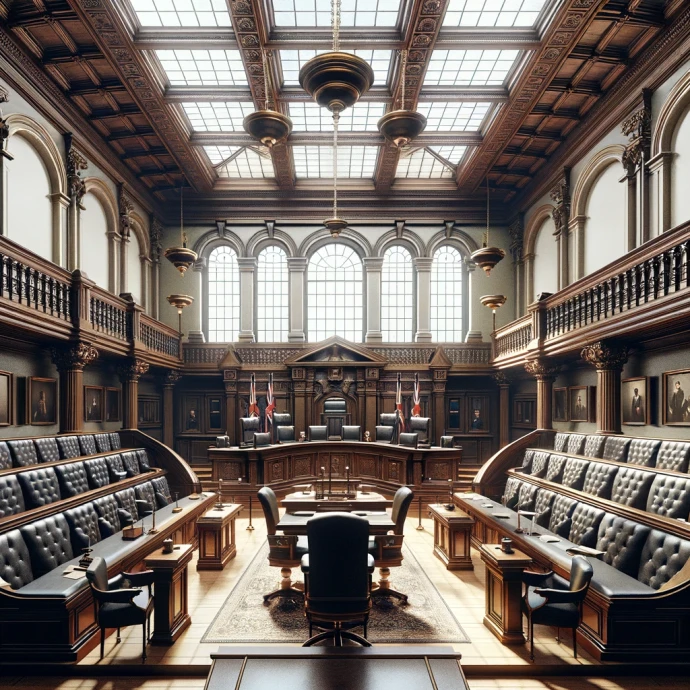The Complex Challenge of Regulating Artificial Intelligence

The Conundrum of Controlling AI: Insights from Jimmy Wales
In a international increasingly more intertwined with synthetic intelligence (AI), the question of law turns pivotal. Jimmy Wales, the renowned founder of Wikipedia, gives a crucial attitude, likening the belief in powerful AI law to «magical questioning.» He points out a crucial gap in knowledge amongst politicians approximately the internet and AI's abilities. Wales's analogy compares the law of AI to controlling a tool like Photoshop – an undertaking he deems impractical.
The United Nations Steps In
The urgency of AI regulation became underscored at some stage in an ancient UN Security Council meeting, convened by way of Secretary-General António Guterres. This first-of-its-kind discussion highlighted AI's capability perils, from cyber threats to incorrect information. Guterres emphasised the duty toward gift and future generations in addressing those dangers. In reaction, the UN set up the High-Level Advisory Body for Artificial Intelligence, aiming to discover vital international regulations.
Tech Giants and Lawmakers: A Crucial Dialogue

The conversation extends beyond global our bodies. In America, tech luminaries like Elon Musk and Mark Zuckerberg engaged with lawmakers to discuss AI's destiny and ability regulations. This collaboration indicates the growing recognition of AI's effect across various sectors.
Scepticism from AI Insiders
Despite these efforts, some specialists remain sceptical. Pierre Haren, an AI veteran with many years of experience, including at IBM, voices worries. His astonishment at the advancement of generative AI, like ChatGPT, underscores the complexity of the issue. Haren points out the difficulty in achieving international consensus on AI law, citing non-cooperative nations as substantial barriers.
Generative AI: A Leap into the Human-like
Generative AI's capability to create new content from tune to motion pictures, and its utility in various situations, represents a quantum soar. Its human-like capacity to make high-level analogies raises the stakes in the law debate.
The Perspective of Non-Cooperative Nations
Pierre Haren also highlight the demanding situations posed by international locations like North Korea and Iran, which might not adhere to global AI rules. The law of such non-cooperative actors is visible as a near-not possible assignment, particularly in the context of geopolitical tensions.
AI for Good: The UN's Positive Initiative

Amidst these worries, the UN's «AI For Good» programme, spearheaded by physicist Reinhard Scholl, gives a beacon of hope. This initiative specializes in leveraging AI to achieve sustainable improvement dreams. However, Scholl also acknowledges the necessity of AI law, evaluating it for safety requirements in different industries.
The Dilemma of AI's Dual-Use Nature
Scholl increases an alarming possibility – the convenience with which AI might be used to increase dangerous competencies, like biological guns. This dual-use nature of AI technology underscores the crucial need for governance.
Envisioning a UN Regulatory Body on AI
The concept of a UN regulatory frame for AI comparable to the International Civil Aviation Organisation (ICAO) is proposed. This body ought to play a pivotal role in standardizing AI safety and utilization pointers globally. Robert Opp, chief digital officer for the UN Development Programme, supports this notion while emphasizing the want to stability regulation with the beneficial use of AI in sectors like poverty comfort.
The Wikipedia Founder's Stance: A Caution Against Overregulation
In assessment, Jimmy Wales cautions in opposition to overestimating the position of tech giants in AI's proliferation. He argues that the good-sized quantity of person builders using open-supply AI software programs makes complete law an unrealistic goal.
Conclusion: The Road Ahead in AI Governance
The debate on regulating AI is a complex tapestry of critiques, demanding situations, and capability pathways. From the United Nations' initiatives to the skepticism of AI insiders, the adventure toward effective AI governance is fraught with uncertainties. As AI keeps adapting, the global community faces the daunting assignment of navigating this uncharted territory, balancing innovation with moral and protection considerations. The destiny of AI law remains an open question, one that requires continued dialogue, collaboration, and a nuanced expertise of era's function in our world.

Become a part of digital history





Comments about The Complex Challenge of Regulating Artificial Intelligence